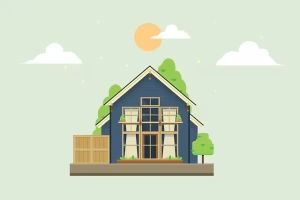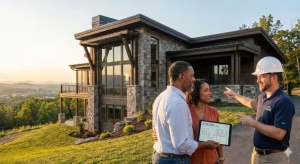If you are one of the many skilled home builders in the market today, you likely face a constant, nagging challenge. You see competitors’ trucks all over town, their signs dotting new lots, and you find yourself bidding for the same projects, often feeling like the decision comes down to a few dollars and cents. This is the problem of commoditization, where your unique skills and passion get lost in a market that sees all home builders as interchangeable parts.
But what if you could break free from that cycle? Effective brand differentiation is the strategic solution. It is not about having a fancier logo or a clever tagline; it is the essential business strategy that allows you to stop competing on price and start winning projects based on your unique value.
This post will provide a clear blueprint for you, a leader among home builders, to define what makes you different, showcase that difference to the right clients, and build a brand that is not just successful, but sought after.
The Foundation: What Is Brand Differentiation and Why Is It Critical for Builders?
Let’s start with a clear definition. Brand differentiation is simply what makes your company the only logical choice for a specific type of customer. It is the reason a client will wait six months for your schedule to open up instead of hiring the builder down the street who can start tomorrow. It is the sum of every interaction, every design choice, and every promise you keep. For home builders, this is more important than in almost any other industry because the purchase is so personal and the investment is so significant.
The Cost of Being the Same
When clients cannot tell the difference between you and other home builders, they are forced to make a decision based on the only factor they can easily compare: price. This leads to a number of problems that erode your business from the inside out.
- Shrinking Profit Margins: You get caught in a “race to the bottom,” constantly sharpening your pencil and cutting your profits just to win a job. This is not a sustainable way to grow a business.
- Low-Quality Leads: You attract clients who are shopping for a bargain, not a partner. These clients are often more difficult to work with, question every expense, and do not value the expertise that you bring to the table.
- Lack of Loyalty: A client who hired you because you were the cheapest will leave you for the same reason. There is no loyalty, which means no stream of high-quality referrals to keep your pipeline full. Many home builders struggle with this cycle.
The Reward for Being Different
Now, consider the opposite. When you have a strong, differentiated brand, the entire dynamic shifts. You are no longer just another one of the local home builders; you are the builder for a certain type of project or client.
- Ability to Charge a Premium: Clients are willing to pay more for expertise and a unique product. Whether it is your mastery of green building or your reputation for stress-free project management, a distinct brand commands a higher price.
- Attracting Ideal Clients: Your marketing starts to work for you, filtering out the price shoppers and bringing in clients who are already sold on your specific approach. They seek you out because you are the best at what you do.
- Building Lasting Value: A strong brand is an asset. It outlives any single project and creates long-term enterprise value, making your company more stable and valuable through all market conditions. Great home builders understand that their brand is their most important asset.
Step 1: Defining Your Unique Selling Proposition (USP) – The Cornerstone of Your Brand

Your Unique Selling Proposition, or USP, is the heart of your brand. It is the one thing that you can promise a client that your competitors cannot easily match. Think of it as your secret ingredient. It is specific, compelling, and focused on a benefit the customer truly cares about. Finding your USP requires a bit of deep thinking and honest assessment. This is not just a marketing exercise; it is a business strategy workshop.
Actionable Workshop: How to Find Your USP
Set aside some time with your team and work through these three areas of analysis. Be honest and write everything down.
1. Internal Analysis (Look in the Mirror)
First, you need to understand your own strengths. What does your company do better than other home builders?
- Skills: Do you have a master carpenter on staff who does incredible finish work? Is your team certified in a specific complex installation?
- Process: Are you exceptionally good at staying on schedule? Do you have a communication system that clients love? Perhaps you have a unique design-build process that saves time and money.
- Passion: Why did you get into this business? Is it a love for historic architecture? A passion for creating energy-efficient homes? Your story is a powerful part of your brand.
- Technology: Are you using advanced project management software like BuilderTrend to give clients a seamless experience? Do you use drones for site surveys or 3D modeling for client previews?
2. Market Analysis (Look at the Competition)
Next, you need to understand the landscape. Who are you competing against, and where are the opportunities?
- Competitor USPs: Look at the websites and marketing materials of other local home builders. What do they claim makes them special? Are they all saying the same thing, like “quality craftsmanship” and “customer satisfaction”? These are expectations, not differentiators.
- Market Gaps: What is nobody else doing? Is there a growing demand for homes with accessibility features for aging parents? Is there a lack of home builders who specialize in building on difficult, sloped lots? Look for the needs that are not being met.
3. Client Analysis (Look Through Their Eyes)
Finally, and most importantly, you need to understand your ideal customer.
- Who is your favorite client? Think about the best project you ever worked on. What was that client like? What did they value? The goal is to attract more people like them. Are they young families who need functional space? Are they retirees who want a low-maintenance luxury home?
- What are their biggest fears? The home building process can be stressful. Most clients worry about the project going over budget, taking longer than promised, and poor communication. If you can build your entire process around solving one of these deep-seated fears, you will have an incredibly powerful USP. For example, some home builders offer a guaranteed completion date or a fixed-price contract to directly address these fears.
By the end of this exercise, you should be able to complete this sentence: “We are the only home builder in [Your City] that specializes in [Your Niche] for [Your Ideal Client] by providing [Your Unique Promise].”
Step 2: 7 Pillars of Differentiation for Modern Home Builders

Once you have a clear idea of your USP, you need to build your business operations around it. Here are seven key areas, or pillars, where home builders can create meaningful separation from the competition. You do not need to excel at all seven, but mastering one or two can transform your brand.
1. Specialization & Niche Dominance
The fastest way to stop being a commodity is to stop being a generalist. A specialist is always seen as an expert and can command a higher fee. Instead of being a builder of “custom homes,” become the go-to expert for a specific type of home. This focus makes all your marketing efforts more effective because you are speaking directly to a single audience.
- Examples: Luxury waterfront properties, net-zero energy homes, modern farmhouses, historic renovations and additions, or multi-generational homes with in-law suites. By becoming the best in one of these areas, you become the obvious choice for clients seeking that specific product. Many successful home builders started by finding one niche and owning it.
2. Unparalleled Customer Experience (CX)
Many home builders focus only on the final product, the house. But the journey—the experience of building the house—is just as important to the client. Differentiating on customer experience means making the entire process predictable, transparent, and even enjoyable.
- How to do it: Create a detailed communication plan. Give clients a welcome package that explains every step of the process. Send a professional weekly update email with photos and a look-ahead schedule. Use software that allows clients to log in and see progress, approve changes, and track the budget in real time. A builder who eliminates stress is a builder clients will rave about.
3. Architectural Style & Design Signature
Some home builders become famous for a specific look. They develop a design signature that is instantly recognizable. This creates a powerful brand that attracts clients who want that specific aesthetic for their own home.
- How to do it: You can achieve this by having an in-house design team or by forming an exclusive partnership with a talented local architect or interior designer. Consistently building homes with a cohesive, high-quality design point of view will elevate your brand from a simple contractor to a visionary creator. This is common among high-end and luxury home builders.
4. Superior Quality & Material Sourcing
Every builder claims to have great quality. To make this a true differentiator, you must be specific and tangible. You have to prove it.
- How to do it: Go beyond vague claims. Talk about the specific premium brands you use, like Andersen windows or Sub-Zero appliances. Highlight your construction techniques. Do you use advanced framing that reduces thermal bridging? Do you have a 200-point quality control checklist that every project must pass? Feature your best subcontractors and the deep relationships you have with them. Make the invisible quality of your homes visible in your marketing.
5. Technological Integration & Smart Homes
In today’s world, a new home should be a smart home. Many home builders treat this as an afterthought or a complicated add-on. You can stand out by making technology a core part of your offering.
- How to do it: Instead of leaving it to the client to figure out, offer curated smart home packages as a standard feature. This could include integrated lighting control, smart thermostats, security systems, and robust Wi-Fi. Positioning your company as a tech-forward builder appeals to modern buyers and adds real, functional value to the homes you build.
6. Sustainability & Green Building Credentials
More and more homeowners are looking for homes that are not only beautiful but also healthy, efficient, and environmentally friendly. This is a powerful and growing niche where you can build a stellar reputation.
- How to do it: Invest in training and certifications like LEED or Energy Star. Market the tangible benefits of your green homes, such as lower monthly utility bills, better indoor air quality, and the use of sustainable, non-toxic materials. Partner with organizations like the U.S. Green Building Council (USGBC) to establish your credibility. These are things very few home builders are doing well.
7. Community & Lifestyle Focus
People are not just buying a house; they are buying a place to live their life. The best home builders understand this and sell a lifestyle, not just sticks and bricks.
- How to do it: If you build in a specific development, market the community itself. Talk about the walking trails, the proximity to great schools, or the friendly neighborhood atmosphere. If you are a custom builder, show how your homes enable your clients’ lifestyles. Feature a home with a stunning kitchen for a client who loves to entertain, or a home with a dedicated art studio for a creative client. Connect the home to the life that will be lived within it.
Step 3: Amplifying Your Differentiated Brand in the Marketplace
Having a great brand is useless if no one knows about it. Once you have defined your USP and built your business around your chosen pillars, you need to shout it from the rooftops. Your marketing should be a direct reflection of your unique brand.
Your Website & Digital Presence
Your website is your digital storefront, and it needs to instantly communicate what makes you different. A builder specializing in rustic mountain homes should not have a sleek, minimalist website. Every photo, every word, and every color should align with your brand. It must clearly state who you build for and what you do better than other home builders.
Content Marketing
Create content that proves your expertise in your niche. If you are a green builder, write blog posts about “The 5 Biggest Myths About Geothermal Heating” or “How to Design a Home with Great Indoor Air Quality.” If you are a luxury builder, create stunning video tours of your completed projects. This content builds trust and attracts the right kind of clients before they even contact you.
Visual Branding (Instagram, Pinterest, Houzz)
Home building is a visual business. High-quality, professional photography and videography are not optional; they are a critical investment. Use platforms like Instagram, Pinterest, and especially Houzz to showcase your work. Do not just post photos of finished rooms. Show behind-the-scenes details of your quality construction. Tell the story of the project from start to finish. This is where many home builders can improve their marketing.
Reputation Management & Social Proof
Your reputation is your brand’s foundation. You need to actively manage it.
- Gather Reviews: Systematically ask every happy client for a review on Google, Houzz, and other relevant platforms. Guide them to mention the specific things that reflect your USP. For example, “We loved how [Builder’s Name] kept us updated every single week.”
- Get Testimonials: A video testimonial from a thrilled client is one of the most powerful marketing tools any of the home builders can have.
- Win Awards: Submit your best projects for industry awards from organizations like the National Association of Home Builders (NAHB). Winning an award provides third-party validation of your expertise.
Commonly Asked Questions

How do you differentiate a construction company?
The key is to move from being a generalist to a specialist. You can differentiate through a specific target client (e.g., building for the healthcare industry), a unique process (e.g., a design-build method that guarantees faster completion), or a specialized technical skill (e.g., expertise in historic masonry). Differentiation for home builders comes from consistently delivering on a unique promise that the competition cannot easily copy.
What makes a home builder unique?
A home builder’s uniqueness comes directly from their Unique Selling Proposition (USP). It is never about being the cheapest. Instead, it might be their signature architectural style, a firm commitment to a building standard like Passive House, or an incredibly transparent and client-friendly process that removes the typical stress and anxiety of building a home.
What is the competitive advantage of a home builder?
A true competitive advantage is something valuable that cannot be easily bought or copied by other home builders. It is rarely about one single thing. It is often found in the company’s systems, its culture of excellence, its exclusive relationships with the best subcontractors, or a deep, recognized expertise in a very specific niche that has been built over many years.
Conclusion: Your Brand is Your Most Valuable Asset
In a market full of capable home builders, simply being good is not good enough. To thrive, you must be different. You must be memorable. Building a distinct brand is not an overnight project; it is a deliberate, ongoing process. It starts with the deep, strategic work of defining your USP. From there, you must weave that unique promise into every pillar of your business, from the client experience to the materials you choose. Finally, you must communicate that unique value through everything you do, from your website to your conversations with clients.
The path to differentiation requires focus and commitment, but the rewards are immense. You will attract better clients, earn healthier profits, and build a resilient business that is a true reflection of your values and skills. In the end, you are not just building homes; you are building a reputation. Make it a uniquely valuable one.







